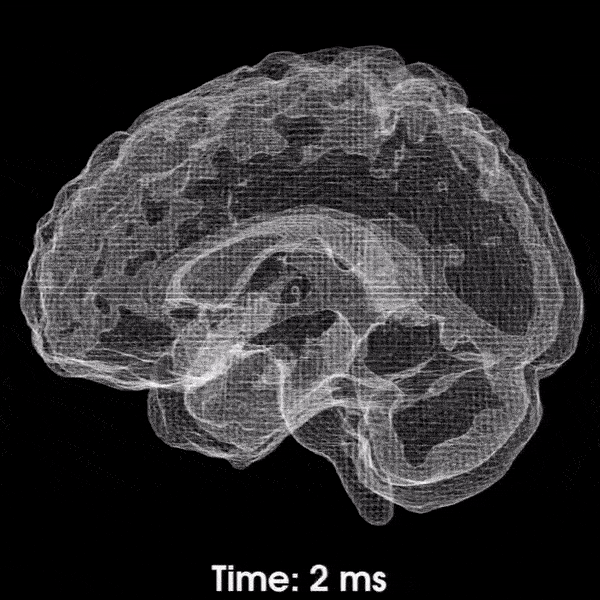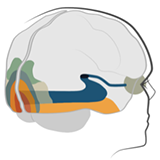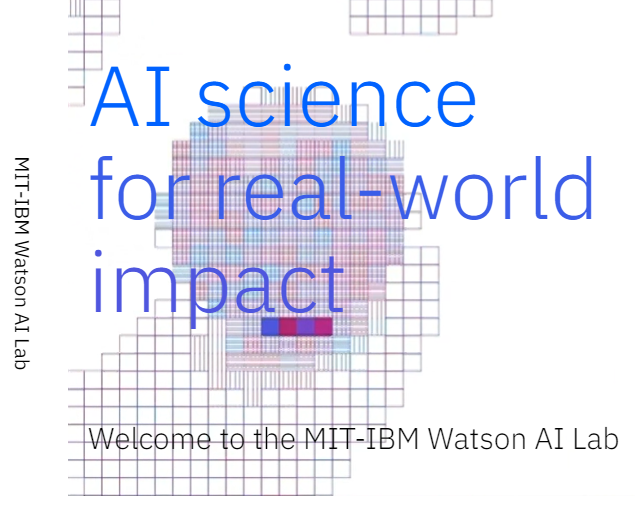
Aude Oliva
Cognitive Scientist and Computer Scientist
Director of Strategic Industry Engagement, MIT Schwarzman College of Computing
MIT Director, MIT-IBM Watson AI Lab
Co-lead, MIT AI Hardware Program
Senior Research Scientist, CSAIL
Contact Information:
MIT, 32-D432
MIT, 77 Massachusetts Avenue
Cambridge, MA 02139
Email: oliva@mit.edu
Phone: 617 452 2492
Biography
After a French baccalaureate in Physics and Mathematics and a B.Sc. in Psychology (minor in Philosophy), Aude received two M.Sc. degrees—in Experimental Psychology and in Cognitive Science, and a Ph.D from the Institut National Polytechnique of Grenoble, France. She joined the MIT faculty in the Department of Brain and Cognitive Sciences in 2004, the MIT Computer Science and Artificial Intelligence Laboratory (CSAIL) in 2012, the leadership of the MIT-IBM Watson AI Lab in 2017, and the Quest for Intelligence in 2018. As of October 2021, she is the Director of Strategic Industry Engagement for the MIT Schwarzman College of Computing. In this new role, Aude will develop and implement strategic relationships between corporate collaborators interested in large-scale, multi-faceted engagements with MIT College of Computing. As of Fall 2022, Oliva serves on the committee on Research Computing and Data, in the new Office of Research Computing and Data in the Office of the Vice President of Research.
Her research is cross-disciplinary, spanning human perception/cognition, computer vision (visual AI), and cognitive neuroscience, focusing on research questions at the intersection of the three domains. Her work in Computational Perception and Cognition builds on the synergy between human and machine recognition, and how it applies to solving high-level recognition problems like understanding scenes and events, perceiving space, modelling attention, eye movements and memory, as well as predicting subjective properties of images (like memorability). Her research integrates knowledge and tools from computer vision, machine learning, deep neural networks as well as human perception, cognition and neuro-imaging (fMRI, MEG).
Her work is regularly featured in the scientific and popular press, in museums of Art and Science as well as in textbooks of Perception, Cognition, Computer Vision and Design. She is the recipient of a 2006 National Science Foundation CAREER Award in Computational Neuroscience, the 2014 Guggenheim fellowship in Computer Science and the 2016 Vannevar Bush Faculty Fellowship in Cognitive Neuroscience. She is an elected Fellow of the Association for Psychological Science, and an Osher Fellow of the Exploratorium, San Francisco. From 2015–2017, she was appointed as an Expert at the National Science Foundation, Directorate of Computer & Information Science and Engineering (CISE) in the areas of Computational Neuroscience, Human and Artificial intelligence. Her research programs at MIT are funded by the National Science Foundation, the National Security Science and Engineering program, IBM, Facebook, Facebook Reality Lab, and Systems That Learn-CSAIL. She is currently on the Scientific Advisory Board of the Allen Institute for Artificial Intelligence. See her Google Scholar profile and LinkedIn page.
Current Leadership & Executive Positions
Director of Strategic Industry Engagement
Aude serves as Director of Strategic Industry Engagement in the MIT Stephen A. Schwarzman College of Computing. She develops and implements relationships between the MIT College and corporate collaborators. She interfaces with those interested in large-scale, multi-faceted engagements comprising research, student support, community building, and public interaction activities at MIT. Holding a stewardship role in the MIT AI Hardware Program, Aude constructs and facilitates instrumental pipelines of use-inspired projects that deliver AI hardware & software with enhanced energy efficiency systems. As inaugural faculty lead of the MIT-Amazon Science Hub, she launched the multi-year collaboration between MIT and Amazon in October 2021, to support innovative research in the fields of AI, robotics, computing, and engineering.
In her role of EECS industry officer from 2020-2023, she designed and implemented the MIT Department of Electrical Engineering & Computer Science (EECS) Alliance program, to promote career opportunities and visibility for EECS students and participating companies. As of Fall 2022, Aude serves on the committee on Research Computing and Data, in the new Office of Research Computing and Data in the Office of the MIT Vice President of Research.
MIT Director, MIT-IBM Watson AI Lab
As the MIT director of the MIT-IBM Watson AI Lab—a first-of-its-kind, academic-industrial collaboration focused on AI research—Aude jointly selects and oversees research teams and a portfolio of 100+ cross-cutting AI projects, leading to numerous patents, papers, and applications. Further, the Lab's growing membership program, covering fields from finance and healthcare to international development and construction, allows corporations access to knowledge and tools to roadmap and integrate AI to their business strategies.
Research Overview
Her cross-disciplinary research in Computational Neuroscience, Computational Cognition and Computer Vision, bridges from theory to experiments to applications, accelerating the rate at which discoveries are made by solving problems through a novel way of thinking.
Computational Neuroscience
High-resolution, spatiotemporally resolved neuroimaging is a sort of Holy Grail for neuroscience. It means that we can capture when, where, and in what form information flows through the human brain during mental operations. In the team, we study the fundamental neural mechanisms of human perception and cognition and develop computational models inspired by brain architecture. We are developing state-of-the-art human brain mapping approach fusing magnetic resonance imaging (fMRI), magnetoencephalography (MEG), and computational modeling (CNN), to investigate the neural flow of perceived or imagined events. Unpacking the structure of operations such as sensory perception, memory, imagination, action, and prediction in the human brain has far-reaching implications for understanding not just typical brain functions, but also the maintenance or even augmentation of these functions in the face of internal (disease or injury) and external (information overload) challenges.
Computational Cognition
Understanding cognition on an individual level facilitates communication between natural and artificial systems, resulting in improved interfaces, devices, and neuroprosthetics for healthy and disabled people. Our work has identified that events carry the attribute of memorability, a predictive value of whether a novel event will be later remembered or forgotten. Predicting memorability is not an inexplicable phenomenon: people have a tendency to remember and forget the same images, faces, words, and graphs. Importantly, we are developing computational models that predict what people will remember, as they are encoding an event or even before they witness an event. Cognitive-level algorithms of memory will be a game changer for society, with applications ranging from accurate medical diagnostic tools to educational materials that will foresee the needs of people, to compensate when cognition fails.
Inspired by strategies from human vision and cognition, we build deep learning models of object, place, and events recognition. To this aim, we are building a core of visual knowledge (e.g., Places, a large-scale dataset with 10 million annotated images; Moments in Time, a large-scale dataset of 1 million annotated short videos) that can be used to train artificial systems for visual and auditory event understanding and common-sense tasks, such as identifying where the agent is (i.e., the place), what objects are within reach, what potential surprising events may occur, which types of actions people are performing, and what may happen next.



